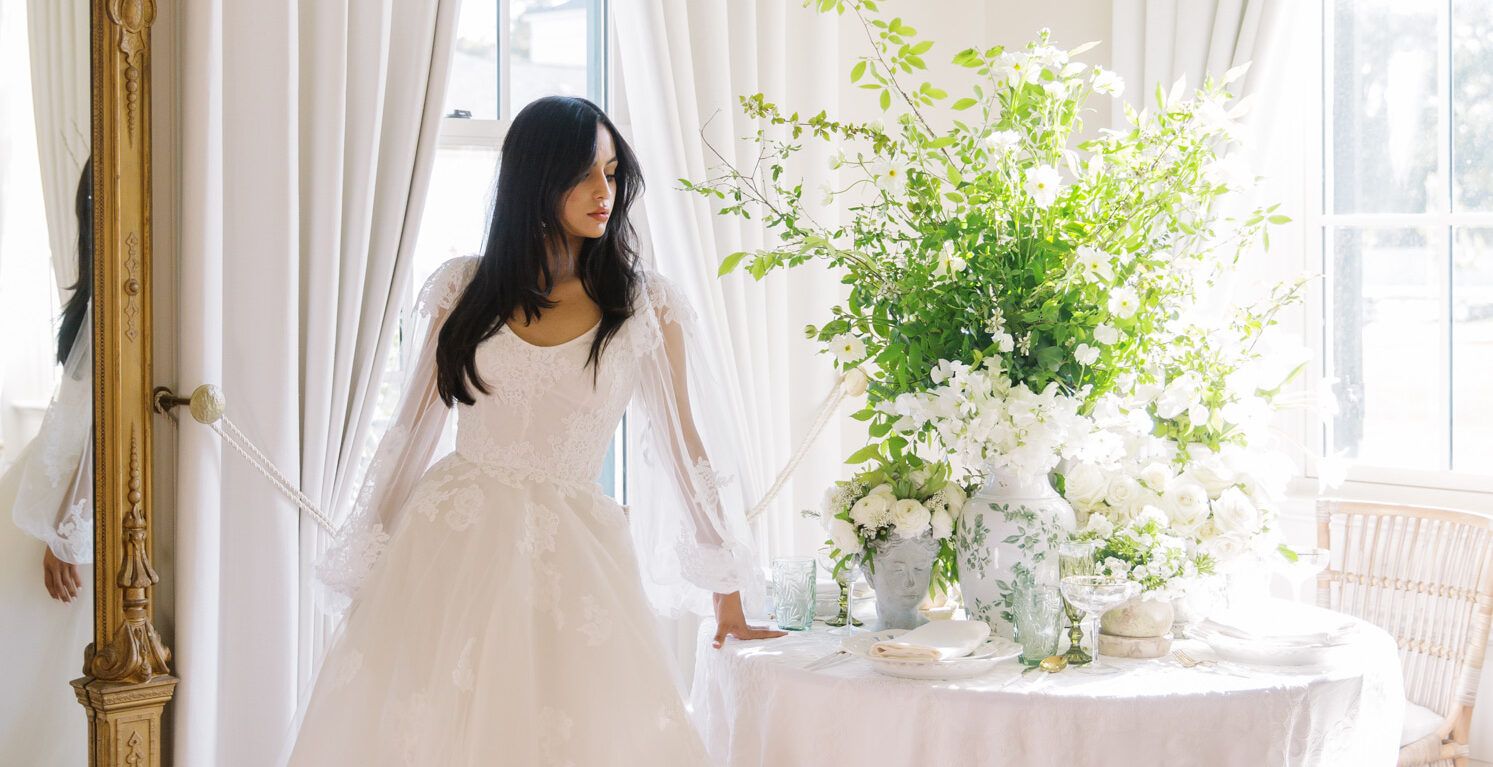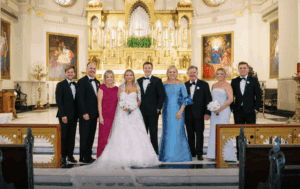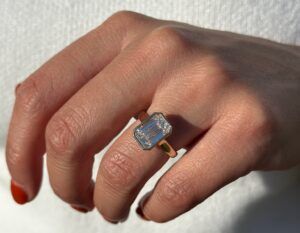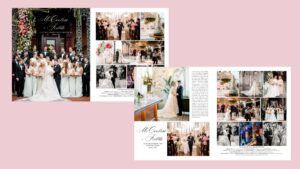
We asked an expert about wedding etiquette so you don’t have to
When we asked etiquette expert April Setliff of Red Stick Refinement to answer some quick questions about wedding dos and don’ts, we can safely say we weren’t expecting to hear her say this: You can wear white—to a wedding! We’re just as shocked as you are.
With the rules changing every day—and with every couple—we sat down with Setliff to get her take on how to embrace new conventions without abandoning time-tested traditions. Read on for all of her advice for newlyweds-to-be and guests alike.

1. Let’s talk parties. Is it OK to invite someone to an engagement party (or other wedding celebration) and not to the actual wedding?
Normally, I would say this may not be a good idea. However, this has happened to me before. I was invited to the reception and all of the pre-wedding festivities but not the actual wedding ceremony. I respected the couple’s wishes as they wanted only family and the wedding party present for their vows. I was completely OK with it and attended the other festivities—with a gift. I had a great time meeting their family and friends.
2. When it comes to invitations, how much information should be included on the invite and what should be reserved for a wedding website?
Your wedding invitation will convey the nature of the wedding, religious or secular, and also the formality or informality. Your wedding website is a great way to state the registry information instead of including it on the wedding invitation.
The wedding invitation should state:
- Who is hosting: The parents of the bride or couple, or the couple themselves (or others)
- The purpose of the event: A marriage or a commitment ceremony
- Who is being honored: The name of the bride and groom
- The bride is listed without her title or last name unless her last name is different from the hosts. The groom’s full name and title are used.
- When the event will take place: Date and time
- Numbers in the date of the wedding are spelled out. For example, “the second of July.”
- Where: House of worship or other location
- When a wedding is held in a house of worship or is a religious ceremony held in a different location, the phrase “request the honour of your presence” is used. Note the traditional spelling of “honour” with a “u.” The same spellling is used for the “favour” in “The favour of a reply is requested.”
- Reception information if there is a reception and RSVP information if you would like people to RSVP
3. How much should a bride spend on gifts for her bridesmaids or the groom for his groomsmen? What about for guests? How much should they spend on a gift for the newlyweds?
The best rule of thumb is whatever your budget allows.
4. On to the registry. What are your thoughts on including things like honeymoon funds on a registry?
Some people are not fans of this, but if it is what the bride and groom want, I will respect their wishes. One thing to consider is that if you want monetary gifts, let your family and friends tell others. Don’t initiate that you have a desire for funds or imply that money matters most. Another note about cash gifts is that they are acceptable in some areas and cultures. One last thing to consider is that these cash gifts are acceptable if the guest feels comfortable with the idea.
5. How soon after receiving a gift should you send out a thank-you card, especially with gifts being sent straight to the couple’s home rather than wrapped and brought to the event?
It is never too late to send a handwritten “thank you.” Try to respond in a timely fashion. Ideally, write the note within a few days of receiving the gift and no later than three months after the wedding. To make it less overwhelming, try setting a daily goal. Writing a few notes a day makes it more doable than trying to tackle hundreds within a month. Also, share the responsibility with your spouse. Make it a team effort!
6. What colors should guests avoid wearing to a wedding?
It depends who you ask. In the past, no female guest would dare wear white. Now, some people say it’s OK to wear shades of white with caution. My rule of thumb is whatever color of style of clothing you choose to wear, it should not distract from the bride’s gown.
Read more about Setliff’s business, Red Stick Refinement, in this story from the inRegister archives.











